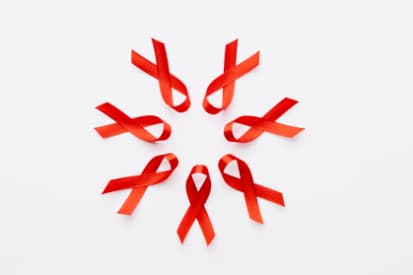Innovative Antiretroviral Therapies: The Latest Breakthroughs
Recent years have witnessed significant advancements in antiretroviral therapy (ART) for HIV, transforming the landscape of treatment and care. New classes of drugs, such as integrase inhibitors, have emerged as powerful tools in managing HIV infection. Medications like bictegravir, which is part of the Biktarvy regimen, have shown high efficacy and favorable safety profiles. These innovative treatments not only help maintain viral suppression but also minimize side effects, improving patients’ overall quality of life. Additionally, the development of fixed-dose combinations has simplified treatment regimens, making adherence easier for patients. Such advancements demonstrate a strong commitment to improving therapeutic options for those living with HIV.
Long-Acting Injectable Treatments: A Game Changer in HIV Management
Long-acting injectable treatments represent a significant breakthrough in HIV management, offering an alternative to daily oral medications. Cabotegravir and rilpivirine, administered as monthly or bi-monthly injections, have been shown to be as effective as daily oral ART in maintaining viral suppression. This approach not only alleviates the burden of daily medication but also enhances adherence among patients who struggle with pill fatigue. Long-acting injectables are particularly beneficial for individuals at high risk of non-adherence, providing a more convenient option while ensuring consistent viral control. As these therapies gain traction, they are poised to redefine HIV treatment paradigms and improve health outcomes for many.
The Role of PrEP and PEP in Preventing HIV Transmission
Pre-exposure prophylaxis (PrEP) and post-exposure prophylaxis (PEP) are critical components in the fight against HIV transmission. PrEP involves taking antiretroviral medication before potential exposure to reduce the risk of infection, while PEP is used after potential exposure to prevent HIV from taking hold. Recent studies have demonstrated the effectiveness of PrEP in various populations, including men who have sex with men and high-risk heterosexual individuals. With the introduction of long-acting injectable PrEP options, adherence challenges may be further mitigated, offering users a convenient prevention strategy. Additionally, community awareness and education around PrEP and PEP are essential to ensure high-risk individuals have access to these lifesaving options.
Research on a Cure: Promising Developments in HIV Eradication
While antiretroviral therapy effectively manages HIV, researchers continue to explore the possibility of a cure. Recent studies have focused on strategies like “shock and kill,” where latent HIV reservoirs are activated to expose the virus to the immune system or therapeutic agents. Additionally, gene-editing technologies, such as CRISPR, have shown promise in eliminating HIV from infected cells. Clinical trials involving broadly neutralizing antibodies (bnAbs) are also underway, aiming to enhance the immune response against HIV. While these approaches are still in experimental stages, they represent a hopeful direction in HIV research, igniting optimism for a future where HIV can be eradicated entirely.

The Impact of Personalized Medicine in HIV Treatment Strategies
Personalized medicine is revolutionizing HIV treatment by tailoring therapies to individual patients based on genetic, environmental, and lifestyle factors. Pharmacogenomics, the study of how genes affect a person’s response to drugs, plays a crucial role in optimizing ART regimens. By understanding genetic variations, healthcare providers can select the most effective medications while minimizing side effects. Furthermore, advances in biomarkers may help predict treatment response and guide decisions regarding switching or intensifying therapy. This patient-centered approach not only improves treatment outcomes but also enhances the overall patient experience. As personalized medicine continues to evolve, it promises to transform HIV management into a more effective and individualized process.
As the landscape of HIV treatment continues to evolve, lifestyle choices, including smoking and vaping, play a significant role in the health of individuals living with HIV. Research indicates that smoking can adversely affect the immune system and exacerbate comorbidities, making it crucial for those managing HIV to consider healthier alternatives. Vaping, often perceived as a less harmful alternative to traditional smoking, has gained popularity among many, including those with chronic health conditions. Platforms like Doctor Vape provide a range of e-cigarettes and vaping products, catering to those looking to reduce their reliance on conventional cigarettes. While switching to vaping may offer some benefits, it is essential for individuals living with HIV to consult healthcare providers to ensure that their choices support overall health and well-being in conjunction with their ongoing treatment.